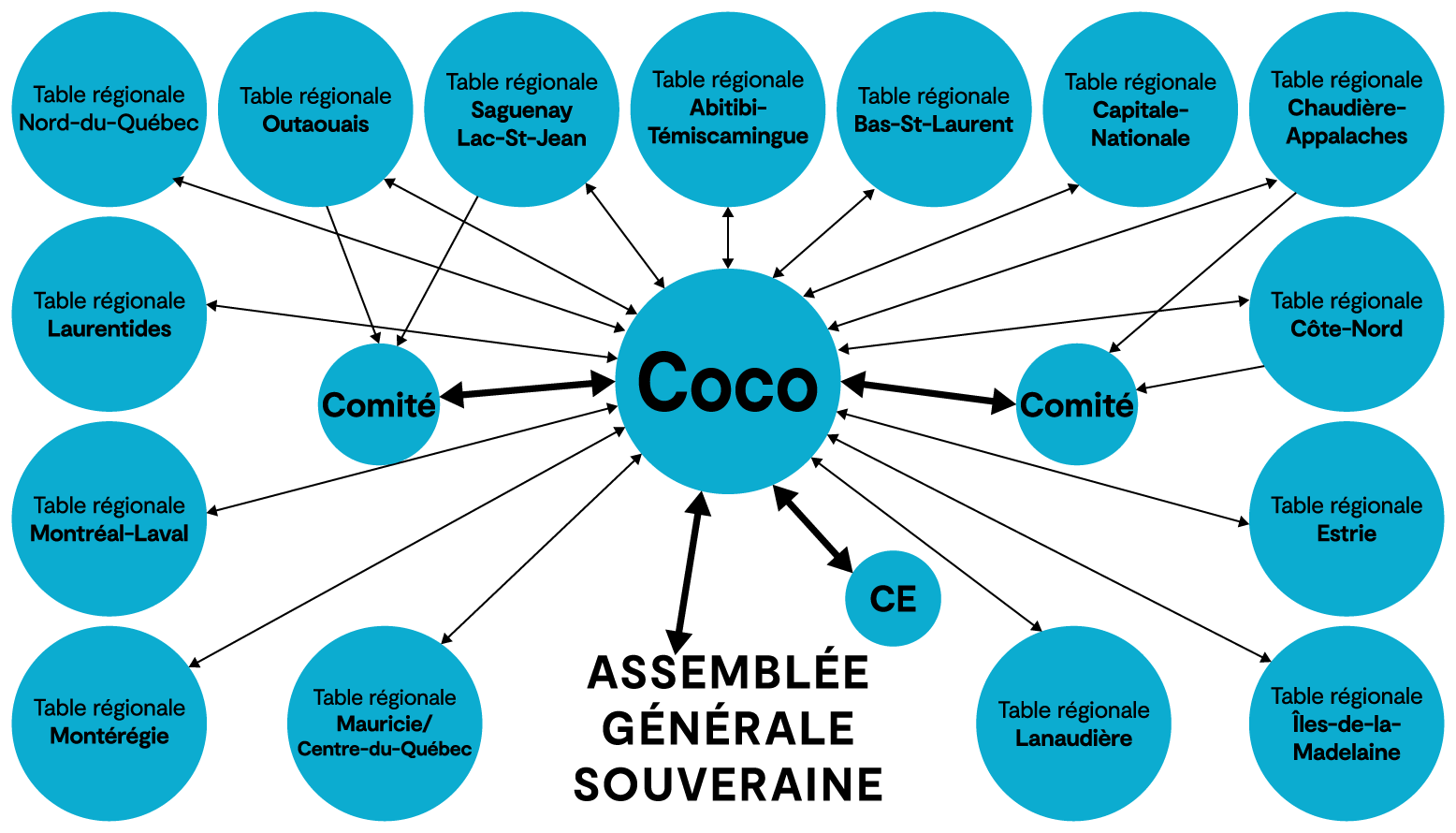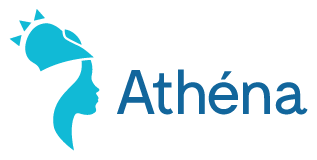About L’R des centres de femmes du Québec
Identity
L’R des centres de femmes du Québec is the largest feminist coalition of independent community action in Quebec. In good times and bad, it unites about a hundred women’s centres in every region of Quebec. It reaches between 250,000 and 300,000 women each year.
Just like its members, the coalition practices independent, feminist community action. It encourages women’s involvement through a series of structural means, such as through truly representative democracy or through compensation for expenses.
L’R represents women’s centres at several community and research roundtables, representing the interests of its members and the priorities decided at each Annual General Meeting. For instance, the team from L’R’s office represents women’s centres in campaigns to increase funding for the overall mission of community groups. L’R’s members also ask that L’R is part of the Group of 13 and that it is involved in different women’s studies research groups.
What is L’R ?
What does L’R do ?
Essentially, L’R has two main missions:
- To contribute to the development of the network of women’s centres in Quebec and ensure consolidation and the reinforcement of centres’ practices
- To work to improve women’s living conditions and promote their interests, social justice, equality and equity for women.
Becoming a member of L’R
To become a member of L’R, first, you need to adhere to our Basis of Political Unity (BPU). Next, you will need to take part in community life. You can do this by contacting a women’s centre in your region or by contacting our office for more information.
In addition to having access to all of our services for members, L’R’s members contribute to the development of feminist solidarity across the province!
Services for members
Along with the mission of women’s centres, the cohesion of our practices is at the heart of L’R’s mission. This is why L’R concentrates a great deal on accompaniment, support, and training.
- Subscription to the Nouvel’R, the newsletter for women’s centres in Quebec, which includes news about feminist issues, community initiatives, and Quebec politics;
- Access to a discussion list to encourage mutual aid and communication between women’s centres. The richness of the coalition is that L’R includes all of us, so it’s an advantage to be able to consult with other women’s centre employees, who can share the tools produced by their centres;
- Access to the private section of the L’R website, which is full of tools for women’s centres;
- Accompaniment and support:
- When centres have difficulties with certain participants and are not sure how to intervene, they can call our office for support and guidance.
- When centres have difficulties in management, they can call our office for support and guidance.
- Permanent staff can travel, without charging fees, to the centre in question (no matter where it is located) to meet the women concerned, in order to guide them as they look for solutions.
- The permanent staff members share the information with one another and collaborate to find solutions.
- When women’s centres want to speak to the media or organize actions on issues that concern the women in their communities, they can call our office for support throughout the process.
- Documents on feminist analysis and reflection;
- The right to present propositions and vote at general assemblies;
- Tools for facilitating workshops;
- Ongoing training
Once every 4 years, our permanent staff will come to your region to offer training which has been adapted to your region’s needs, at the price of $100 per day, per women’s centre participating, regardless of the number or women who attend.
Upon request, permanent staff can travel to offer training adapted to a centre’s needs for the cost of $450 per day. Training sessions available include:
- Feminist intervention
- Feminist intervention – mental health
- Intersectional feminist intervention
- Feminist management
- Fighting prejudice
- Organizational ethics
- Invisible work and the mental load
- And more!
At our annual convention, the second day is devoted to training; workshops, panels, and conferences are offered on subjects which concern L’R members directly.
Services for members
L’R des centres de femmes du Québec has developed many areas of expertise, particularly in management and in feminist intervention. Any organizations, unions or businesses which are interested by these issues are invited to contact our office for support, training or conferences on feminist issues.
- Support
- Training/coaching
- Conferences

